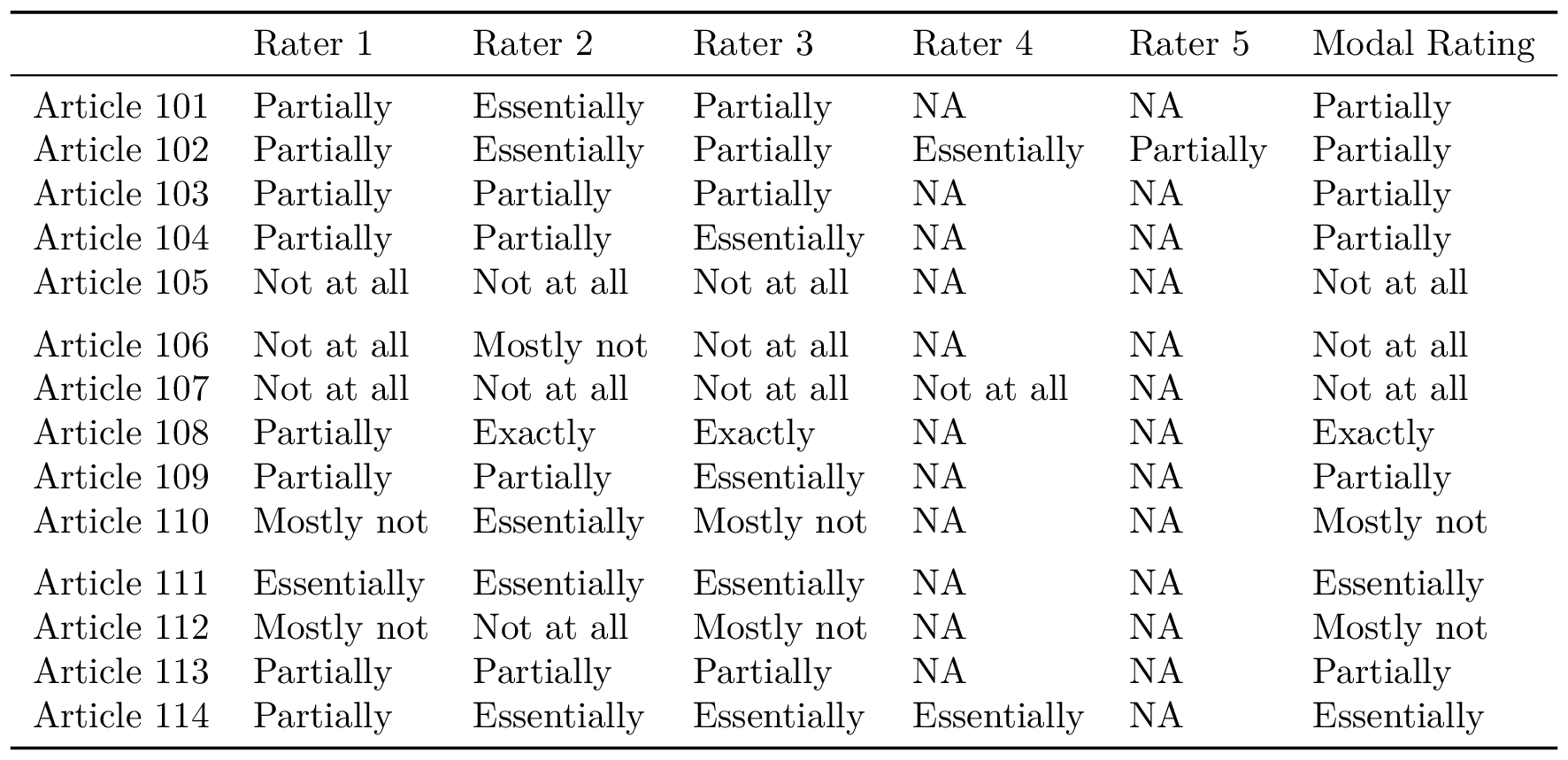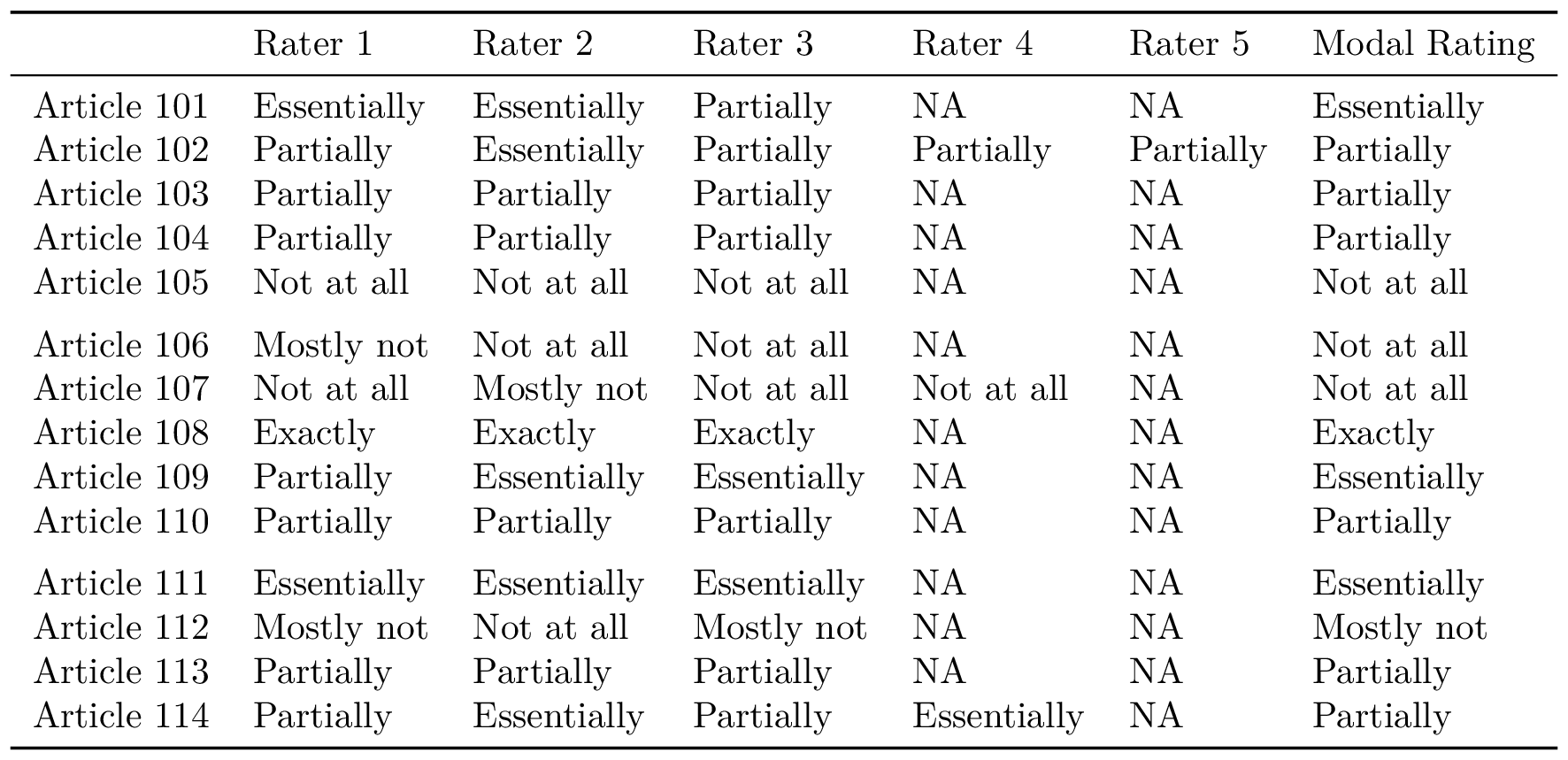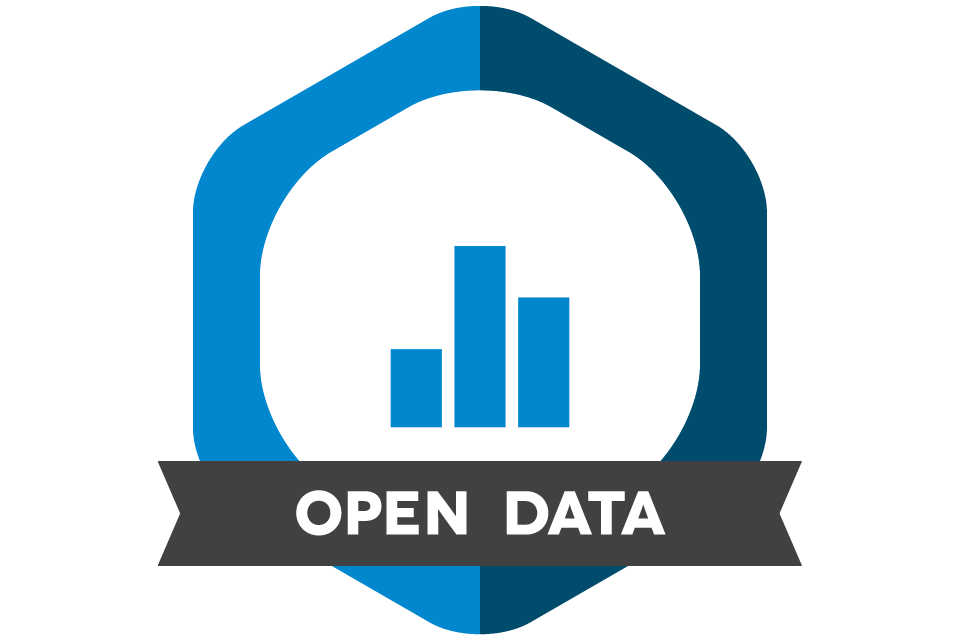The Data Badge Project
Do badges encourage computational reproducibility?
Deborah Apthorp, Sophia Crüwell
Link for slides

Project origins
- It all began with a tweet
- Nick Brown called for volunteers to help with a project
- All articles in the April 2019 issue of Psychological Science earned an “Open Data” badge (the first issue where this was the case)
- Could a team of researchers reproduce the published results?
- Of course I signed up!
Preprint: PsyArXiv
Organisation
- The final team consisted of 12 researchers
- Varying levels of experience - PhD students & upwards
- Each paper was allocated to at least 3 reproducers
- Communication via Google Groups
- First stage - independent reproduction attempts
- Uploaded to OSF
- Phase 1 reports
All code is here: OSF
Team
- Sohpia Crüwell
- Me
- Bradley J. Baker
- Lincoln Colling
- Malte Elson
- Sandra J. Geiger
- Sebastian Lobentanzer
- Jean Monéger
- Alex Patterson
- D. Samuel Schwarzkopf
- Mirela Zaneva
- Nicholas J. L. Brown
My experience
- I was initially assigned 4 papers to work on (based on expertise)
- All had data, 2 had code (MATLAB)
- Time taken per paper: 2-3 hours to 2 days
- One without code was easy to reproduce (simple analyses)
- The other without code had VERY raw data
- Took days, could not exactly reproduce results
- The two with code were not any easier
All code is here: OSF
Phase 2 Reports
- We did not commence this stage until each paper had at least 3 Phase 1 reports
- I ended up working on a 5th paper due to drop-outs
- We communicated via threads on Google Groups
- Sophia Crüwell took over as first author
- Wrote summary reports collaboratively on Google Docs
- Agreed on ratings for each paper
- How reproducible? Exactly/Essentially/Partially/Mostly Not/Not at all
Results!
Individual ratings

Results!
Group ratings

Conclusions
- Do badges work? Not on their own
- Journals offering badges could provide more support for authors
- Criteria for awarding badges should be clear and explicit (e.g. code, readme, raw data)
- Badge checks
- Authors could provide evidence of independent code checks
- Journals could provide this service (via editorial staff or peer review)
Publication
- Sophia took the lead in writing the final manuscript
- We submitted to Psychological Science in April 2022
- To our surprise, not rejected!
- Generally positive, constructive peer reviews
- After revision, reviewers happy
- HOWEVER, editor insisted on several more rounds of changes
- Now accepted, due out soon!
Questions?
Hopefully there is time for some questions
